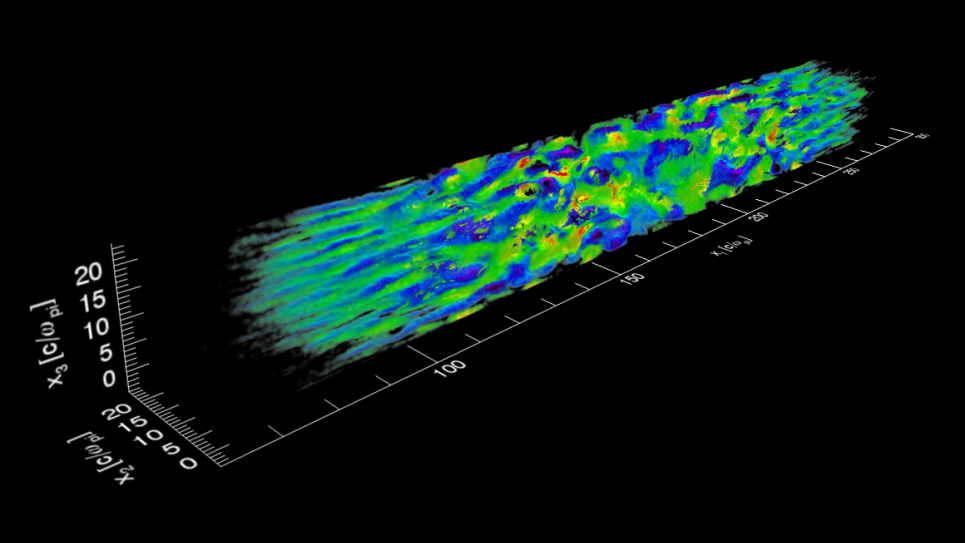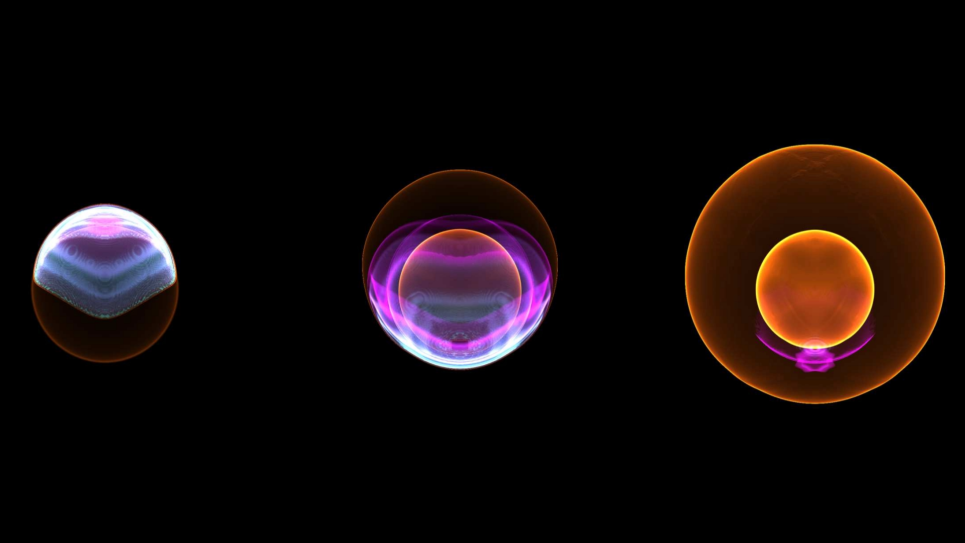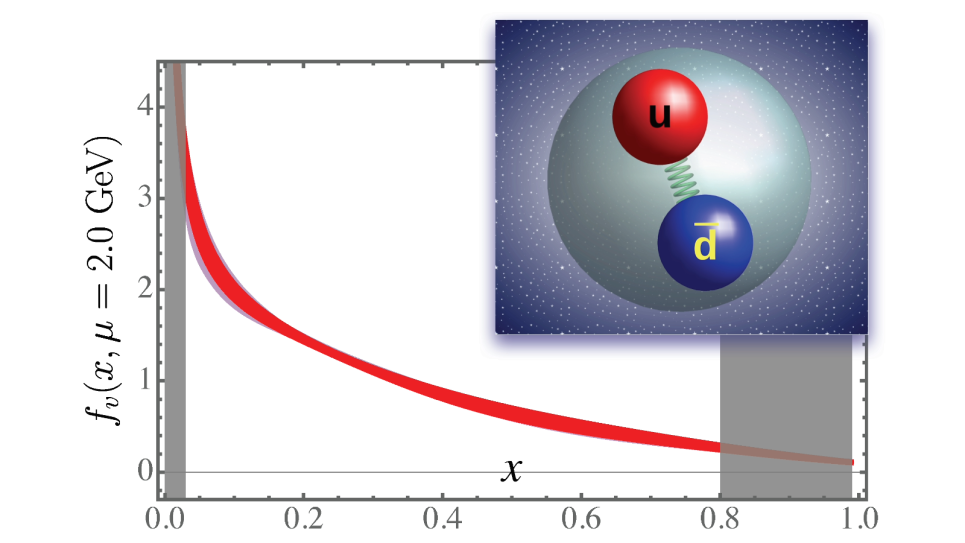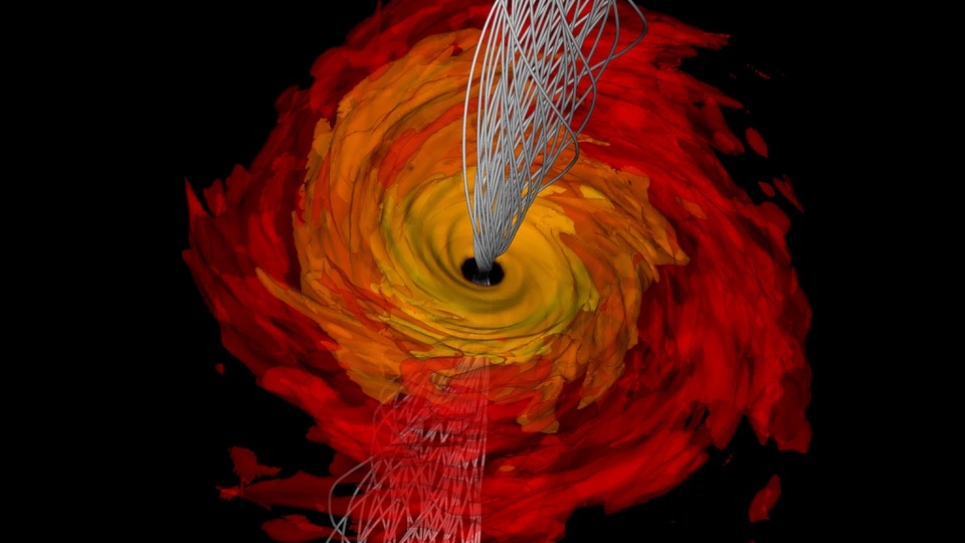
Particle Acceleration in Shocks: From Astrophysics to Laboratory In Silico
This project focuses on longstanding scientific problems closely tied to extreme plasma physics processes, such as identifying the dominant acceleration mechanisms for cosmic rays, and determining whether it is possible to generate relativistic shocks in the laboratory and to mimic these extreme cosmic accelerators. Moreover, recent results produced by this research team have demonstrated that collisionless shock waves can accelerate monoenergetic proton beams with the potential—when augmented by moderate laser intensities—to reach energies relevant for cancer therapy.
Computational modeling is critical to understanding the physical mechanisms behind shock formation and particle acceleration, and to establishing the conditions whereby these shock waves can be excited in the laboratory. Researchers will perform, for the first time, realistic mass ratios in astrophysical- and laboratory-relevant conditions, and self-consistent ab initio massively parallel simulations to study the physics of shock waves.
The team will identify the physical processes and laboratory conditions that lead to the formation of electrostatic and electromagnetic collisionless shocks, and will study the self-consistent shock formation, propagation, and particle acceleration derived from the interaction of intense lasers with plasmas in realistic laboratory conditions. The generation of high-quality ion beams from electrostatic shocks driven by laser-plasma interactions will be examined, as well as the shock propagation in collisionless/collisional media in conditions relevant for inertial confinement fusion plasmas.
A combination of the team’s technical expertise, their recent scientific results regarding plasma simulation, and the outstanding computational resources made available by INCITE will trigger unique scientific results and open new avenues for research on the fundamental processes associated with shock formation, propagation, and particle acceleration.


